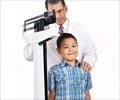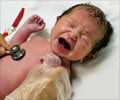Why Mother's milk?
Research spanning many decades and experience of many mothers and babies over the years, have established that breast milk is perfectly suited to nourish infants and protect them from illness. The primary benefit of breast milk is nutritional.
Breast milk contains about 100 components not found in formula milk. It contains just the right amount of fatty acids, lactose, water, and amino acids required for human digestion, development of the brain, and for growth. The mother's natural antibodies against a number of diseases are transferred to the child through breast milk. About 80 per cent of the cells in breast milk are macrophages, cells that kill bacteria, fungi and viruses. A breast-fed baby's digestive tract contains large amounts of a good bacteria Lactobacillus bifidus, that prevent the growth of harmful organisms in the body.
No baby is allergic to their mother's milk, although they may have a reaction to something the mother eats. If she avoids it from her diet, the problem will be solved. Also, milk straight from the breast is always sterile, never contaminated by polluted water or dirty bottles, which can cause diarrhoea in the infant. Breast-fed babies are protected from a number of illnesses, including pneumonia, botulism, bronchitis, staphylococcal infections, influenza, ear infections, and German measles often suffered by bottle-fed babies.
Cow's milk contains a different type of protein when compared to breast milk with which infants can have difficulty digesting it. Bottle-fed infants tend to be fatter than breast-fed infants, but not necessarily healthier.
And finally, sucking at the breast helps good jaw development. It's hard work to get milk out of a breast than a bottle, and the exercise strengthens the jaws and encourages the growth of straight, healthy teeth. The baby at the breast also can control the flow of milk by sucking and stopping. With a bottle, the infant must constantly suck or react to the pressure of the nipple placed in the mouth.
Strong, early bonding of mother and child is another benefit of breast-feeding.
Studies have shown that breast-feeding facilitates the mother's postpartum recovery and lessens the risk of breast cancer. It helps uterus to contract back to normal size after having been stretched during pregnancy. It delays the return of the mother periods. And it helps the mother to develop an emotional and physical bonding with the baby.















